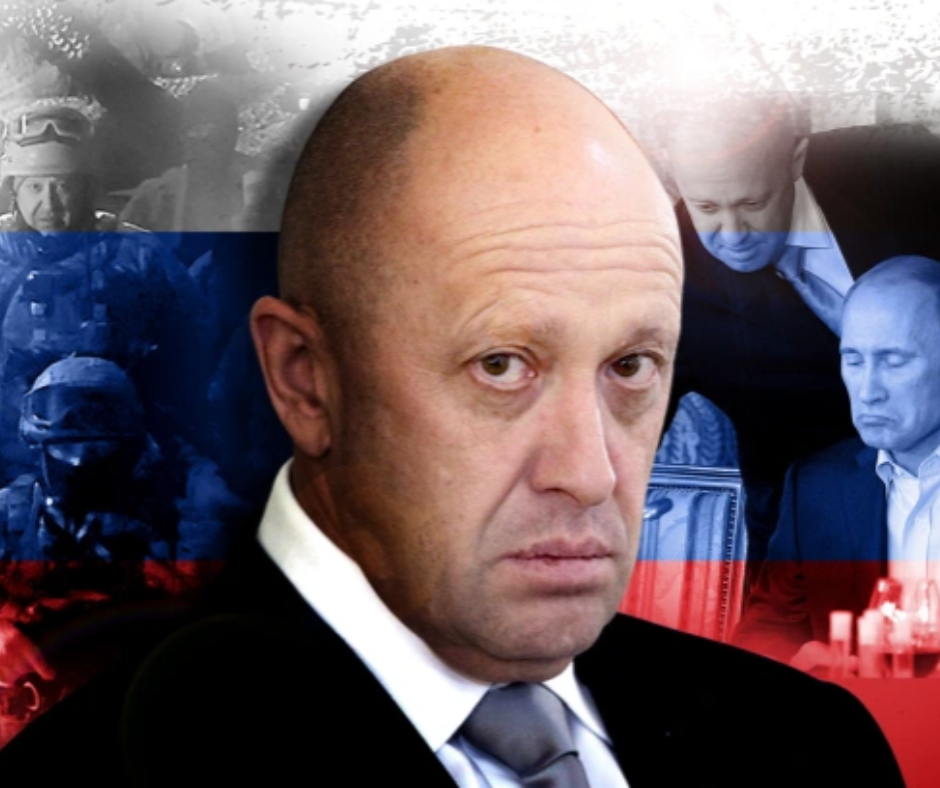Written by Stefan van der Berg (Ministry leader dia-LOGOS)
On the day that Prigozhin publicly challenged Putin's authority, the hashtag #Prigozhin became the most discussed topic on Chinese social media platform Weibo, with over 1.5 billion views.This is an astonishing number, and it demonstrates the level of interest that the Chinese people have in the story of Putin and Prigozhin. It has sparked discussions about the limits of power and the need for transparency and accountability and reflects a growing scepticism and questioning of the Chinese government's authority.
The overwhelming response to the #Prigozhin hashtag on Weibo also highlights the power of social media as a catalyst for change in Chinese society. It demonstrates how information and narratives can quickly spread, shaping public opinion and influencing collective action.
Empowering the Opposition
The Prigozhin incident has raised questions about the unity and cohesion within the Chinese Communist Party. If a figure like Prigozhin can challenge Putin, what does it mean for the strength of the Chinese Communist Party (CCP)? For those who oppose the CCP, the news of Prigozhin challenging Putin was a source of inspiration. They saw a defiant figure challenging their own country's leader. This development can fuel hopes that they, too, could effect change through organization and unified action.
Shattering the Ironman Image
The Chinese people have long idolized Putin as a tough and decisive leader, an "Ironman" figure, through the CCP's propaganda efforts. However, the Prigozhin Russian crisis has shattered this carefully crafted image. The CCP's propaganda efforts have been undermined, and the Chinese people will be questioning the CCP's legitimacy.
The deterioration of Putin's relationship with Prigozhin has eroded his power and authority, and the CCP leaders are paying attention. The CCP leaders are not concerned with the fate of the Wagner Group but rather with the potential for similar internal challenges to occur in China. Xi Jinping, in particular, fears a dynastic change and the loss of control over the party apparatus. The sight of a private military group led by a former chef and composed mostly of inmates causing a crisis for Putin must deeply unsettle him. He is also aware that not only he but also his adversaries within the military have taken notice.
The Search for a Chinese "Prigozhin"
The question of whether there exists a Chinese equivalent to Prigozhin who could potentially challenge Xi Jinping's leadership has been on the minds of many Chinese citizens, including Xi Jinping himself.
This question goes beyond the mere use of mercenaries; it symbolizes a desire for a courageous individual who dares to confront the Chinese leader. As China experts suggest, Xi Jinping is meticulously reviewing his list of loyalists in an effort to prevent a situation similar to that of his counterpart Putin.
A Christian Perspective
The church in China has been in a spiritual revolution for a long time. Decades of anti-religious campaigns by the Chinese Communist Party have not been able to stop the growth of Christianity in China. In fact, Christianity has grown faster in China than anywhere else in the world over the past four decades numbering approximately 100 million believers.
The CCP is now cracking down with new fervour on unregistered churches, which are seen as a threat to the party's authority. However, the crackdown has only served to galvanize the Christian community in China. Christians are increasingly speaking out against the CCP's religious restrictions, and they are finding new ways to worship and fellowship together.
The spiritual revolution in China is a powerful force. The CCP may be able to suppress the church for a time, but it cannot stop the spread of the gospel in China

